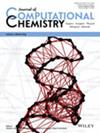MolRWKV: Conditional Molecular Generation Model Using Local Enhancement and Graph Enhancement
Abstract
Conditional-based molecule generation techniques help to provide molecules with specific conditions for practical applications. As the SMILES string is represented as a sequence of strings, it can be processed using a language model that gradually generates its complete sequence by employing a loop to generate the next token. The efficient parallelism and efficient reasoning ability of RWKV indicate its potential for success in the field of natural language processing. Therefore, we proposed the MolRWKV de novo conditional molecule generation model, which integrates CNN and GCN based on the RWKV model, combining the ability of CNN to extract local information of SMILES sequences and the ability of GCN to obtain topological structure information of molecular graphs. Experiments show that MolRWKV can achieve comparable results to existing models in both unconditional and conditional generation, improve the accuracy of conditional generation, generate diverse molecules while retaining scaffold information, and generate molecules with affinity for specific target proteins.


 求助内容:
求助内容: 应助结果提醒方式:
应助结果提醒方式:


